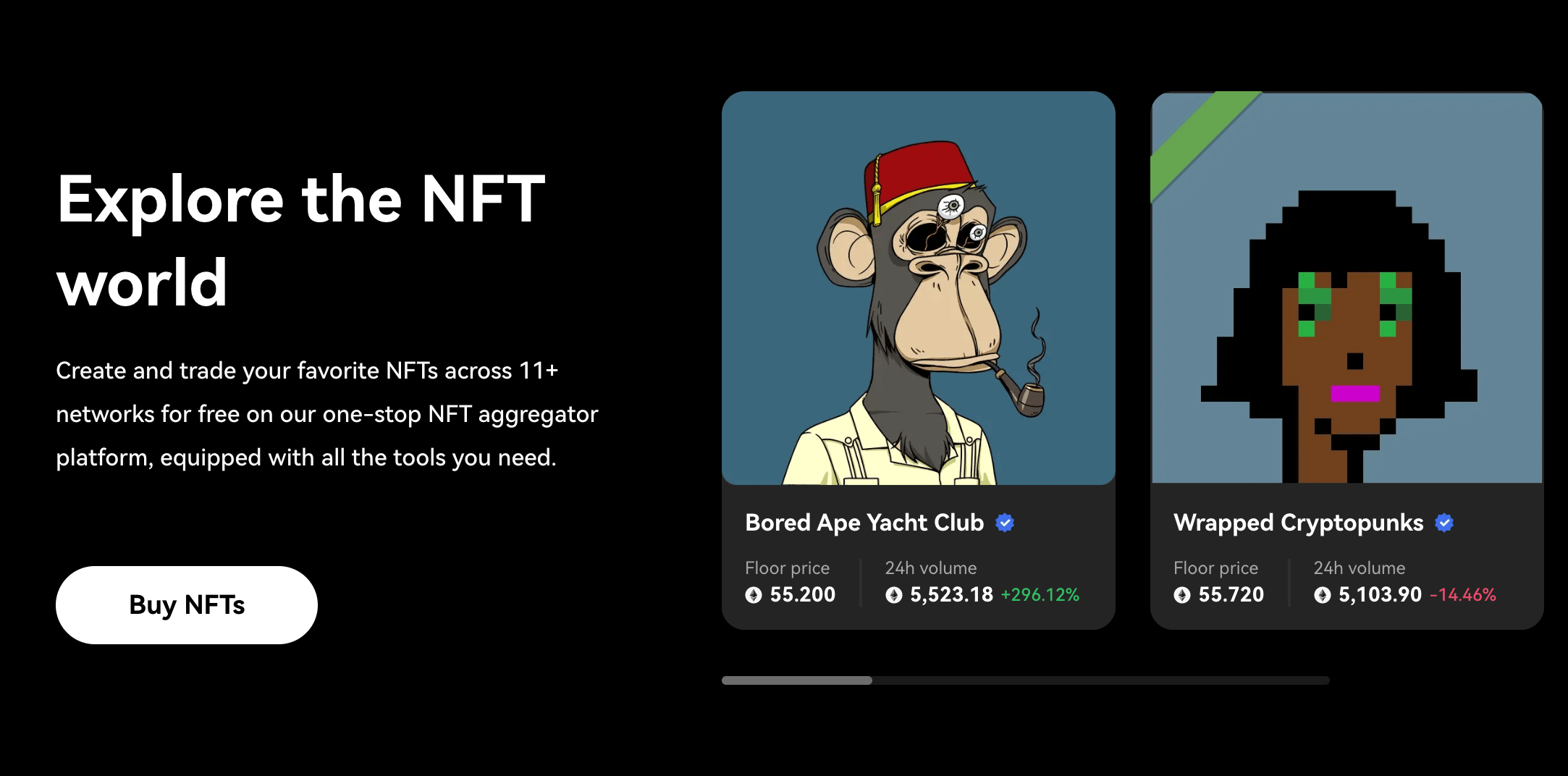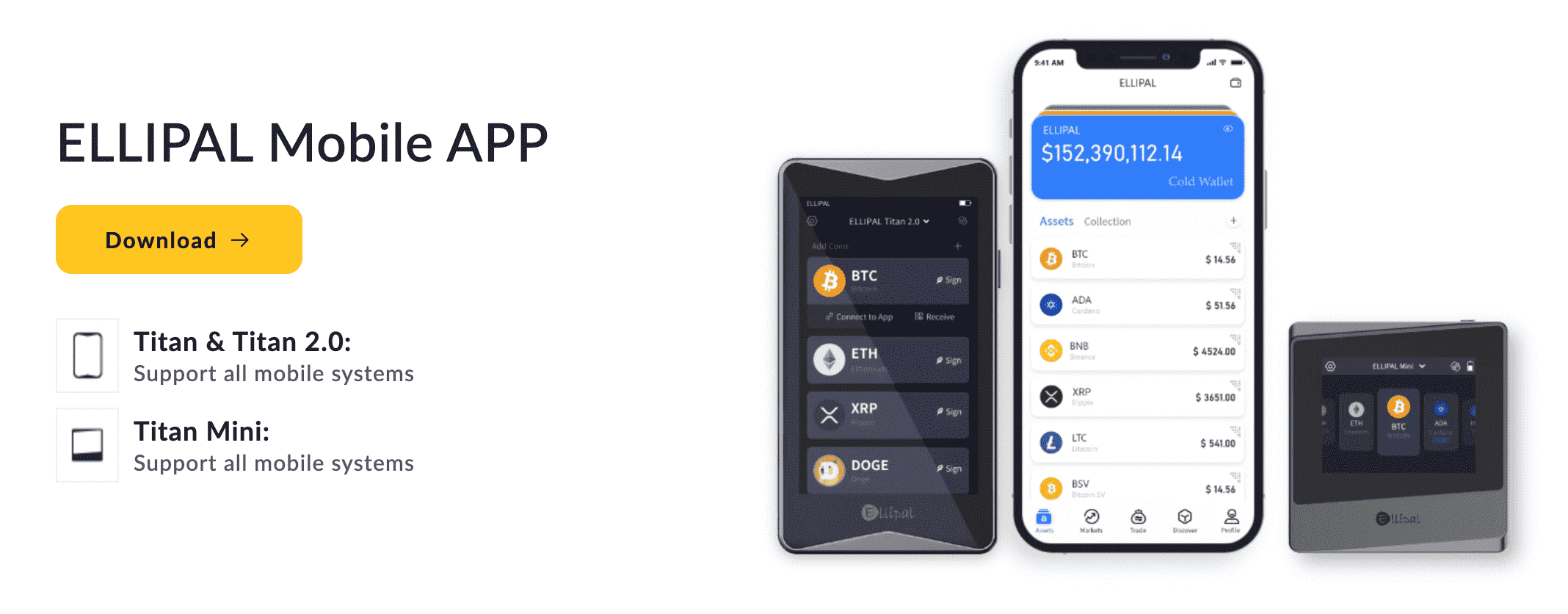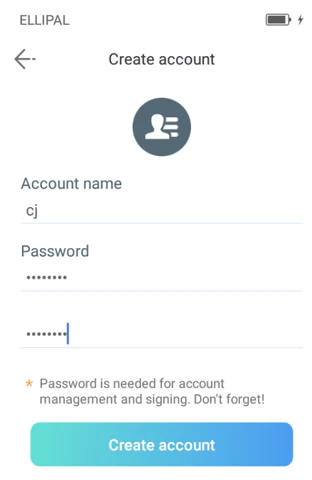All you need to know about Crypto Wallets
How to Find Safe Crypto Wallets
Finding the best Bitcoin wallet can be tricky – especially since so many options exist. However, we’ve identified three tactics that traders can employ to find safe crypto wallets effectively:
Use a Reputable Provider
The most important tactic to use is only choosing crypto wallets offered by reputable providers. It’s a good idea to read online reviews and check a potential provider’s track record before downloading the wallet that they offer. Many crypto wallet providers are even endorsed by high-profile individuals or businesses, which can boost credibility.
Many of the top providers listed in this guide have a long track record of success in the space and high security scores. However, even highly trusted wallets can be susceptible to attacks – Atomic Wallet was one of the leading providers in the space before North Korean hacker group Lazarus stole more than $100 million of customer funds.
Consider the Wallet’s Security Features
When choosing a Bitcoin wallet, it’s also essential to thoroughly research the wallet’s security features. We’ll explore this further in the next section, although it typically involves checking the type of encryption on offer and deciding whether to use a hot or a cold wallet.
Test the Wallet Before Making Large Transfers
Finally, it may be best to test out a wallet with a small amount of crypto before fully committing. This minimizes the risk of catastrophic loss while allowing users to test the wallet’s functionality and security features. Assuming the wallet is up to the task, users can confidently transfer more significant amounts of crypto.
How to Choose the Best Bitcoin Wallet for You
Much like when choosing between the best AI crypto trading bots, deciding which cryptocurrency wallet to use involves analyzing various factors and will also come down to user preference.
Let’s take a look at six of the most important factors to consider:
Security Features
The single most important factor to review when choosing a wallet is its security features. This includes the encryption technology it uses, how it manages the user’s private key, and any backup options it has.
Many of the best Bitcoin wallets also offer two-factor authentication and biometric verification to enhance security further. There are even multi-signature wallets, which means they have two private keys rather than one.
Cold wallets are automatically much safer than hot wallets – due to them not being connected to the internet, hackers cannot access those funds without having physical access to the hardware device.
Type of Wallet
Another important consideration is the type of wallet to use. This can be boiled down to using either one of the best hot wallets or a cold wallet. As noted earlier, the former is connected to the internet, while the latter isn’t.
A crypto hardware wallet is generally considered the safest way to store a trader’s private key. However, they can sometimes be impractical; if practicality is the primary concern, a software wallet may be more suitable.
Those trading crypto daily would likely prefer a hot wallet as they want fast and easy access to funds.
But users should always choose a cold wallet if they are holding large sums of crypto over an extended period of time, and only connect to the internet when they wish to make a specific transaction – buying, selling or transferring elsewhere – and then disconnect.
Check out the Best Crypto Cold Wallet here.
User-Friendliness
Navigating the market can be tricky for beginners, so user-friendliness is an important consideration. Users should review a wallet’s interface design and ease of setup, both of which are crucial for making the trading process accessible to beginners.
Another thing to consider is whether the wallet comes with any help or support. Most prominent providers, like OKX, have dedicated help centers with answers to the most commonly-asked questions, which can be a blessing to newbie investors.
Hardware wallets are not particularly difficult to use but add a another step compared to software wallets, with the likes of Trezor not having a mobile app on iOS also another thing to consider.
Supported Cryptocurrencies
According to CoinMarketCap, the crypto market is now valued at over $1.6+ trillion with tens of thousands of coins available.
Given the scale of the market, more new coins and tokens are springing up every week – so it’s a good idea to choose the best cryptocurrency wallet for asset selection.
Almost all crypto wallets will support the largest coins, such as Bitcoin and Ethereum. However, the top wallets also offer support for lesser-known tokens and stablecoins, which can be highly beneficial.
MetaMask is one of the best wallets for supported cryptos as it has multi-chain functionality and supports a massive range of tokens, as well as those new to the market.
Features & Functionality
Users should also check out the wallet’s features and functionality. For example, if a user wishes to invest in the best DeFi coins, they should check whether the wallet provides access to the decentralized web. Many wallets also provide functionality for NFT storage alongside their crypto storage options. This can be a great benefit for investors interested in obtaining cryptos and NFTs to create a well-rounded portfolio of digital assets.
Many wallets also provide functionality for NFT storage alongside their crypto storage options. This can be a great benefit for investors interested in obtaining cryptos and NFTs to create a well-rounded portfolio of digital assets.
For NFTs specifically, investors who hold images from highly valuable collections should also consider placing them in cold storage and only connecting to the internet when carrying out a specific task such as selling.
Fees
Finally, users should also consider the fees associated with using a wallet. Most software wallets are free to download and use – the only fees to be aware of are network fees that occur during transfers.
As mentioned above, those who choose to use a Bitcoin hardware wallet must be aware that these wallets have an up-front cost since they are physical devices.
The price of these devices can vary significantly, although it usually ranges between $50 and $300, depending on the provider and model.
How to Get & Use a Crypto Wallet
Before ending this guide on the best crypto wallets, let’s look at how to download and use one of these wallets. As noted earlier, our recommended crypto wallet is ELLIPAL, which comes with a free app that’s simple to use and available on iOS and Android devices.
With that in mind, detailed below are the simple steps to download the ELLIPAL app and begin using it today:
Step 1 – Download the ELLIPAL App
ELLIPAL is available as a mobile app on both Android and iOS, so the first step is to head to the Play/App Store and download the ELLIPAL app. It is free and shouldn’t take long to be added to your phone. You can also scan a QR code on the ELLIPAL website.
Step 2 – Create Account
Next, the app will ask you to create your account. Simply input your account name and password.
Step 3 – Confirm Security Features
Once an email address has been put in, the app will ask you to back up your mnemonic words. Read the instructions carefully here to make sure you keep your account safe. The mnemonic consists of 12 words and is used to restore your account.
Step 4 – Use the ELLIPAL App and Wallet
An account should now have been created, and users should be able to use the ELLIPAL hardware wallet, including using the app to manage their crypto assets.
Best Crypto Wallets – Conclusion
In conclusion, this guide has discussed the best crypto wallets available right now – equipping beginners with essential insights that will enable them to navigate the crypto market safely and cost-effectively.
Those seeking a user-friendly and highly secure option may wish to consider ELLIPAL, a non-custodial hardware wallet that offers top security features. It keeps your assets secure in air-gaped cold storage while you can use the ELLIPAL app to easily manage your crypto assets.

































